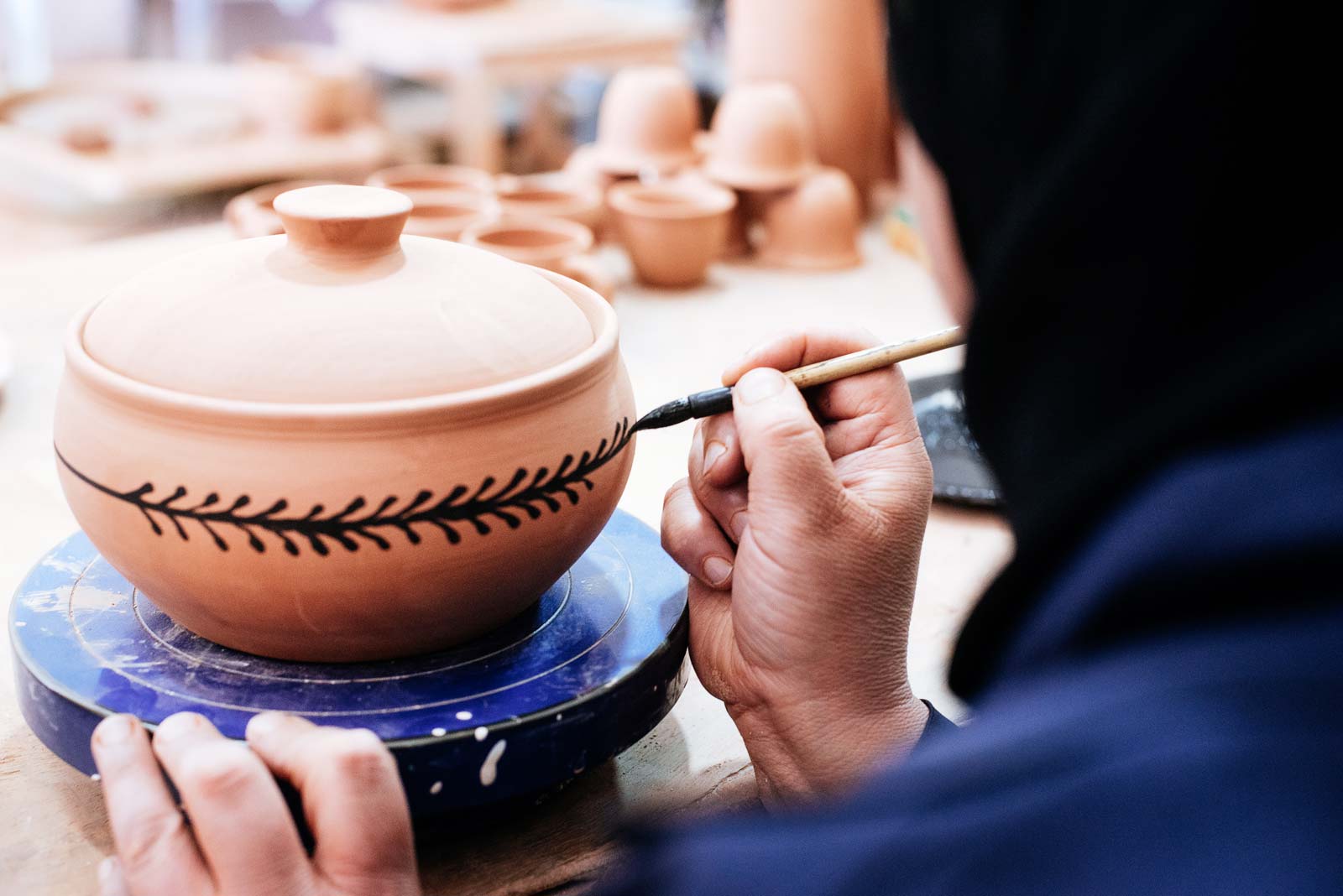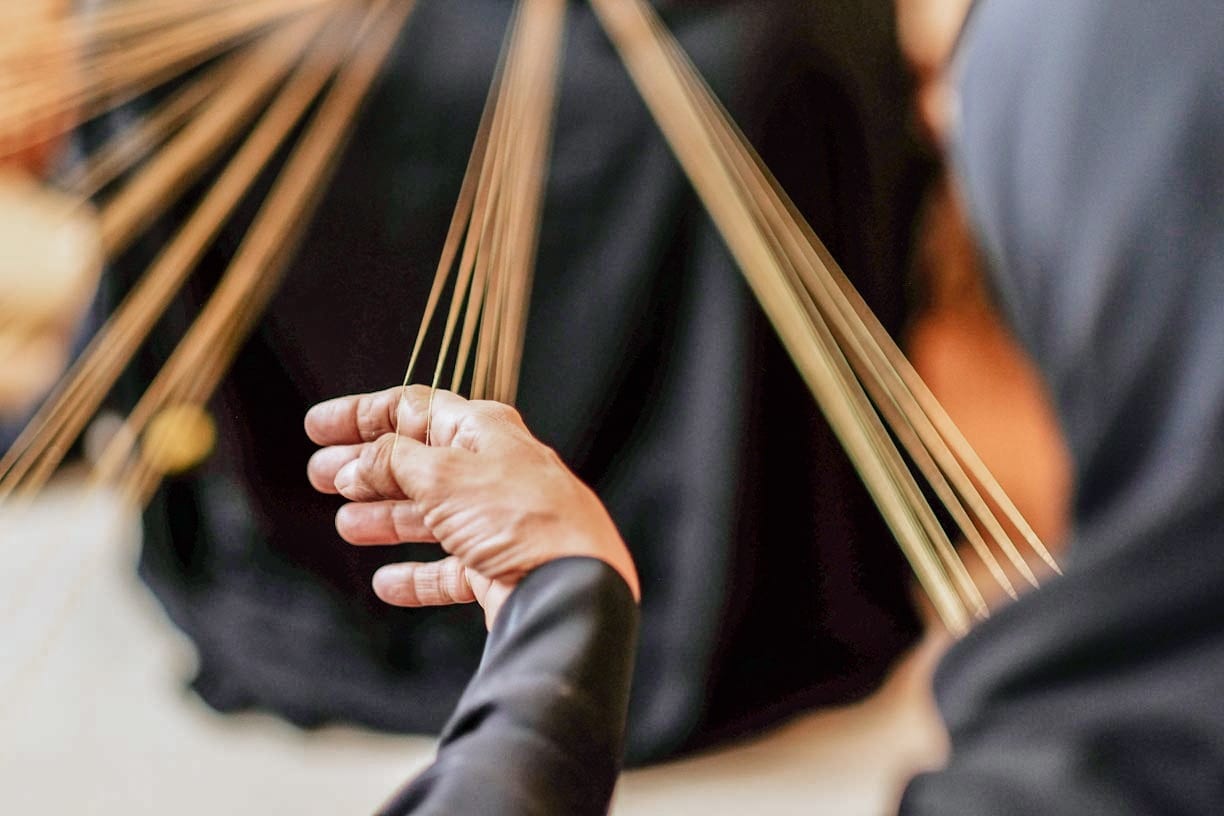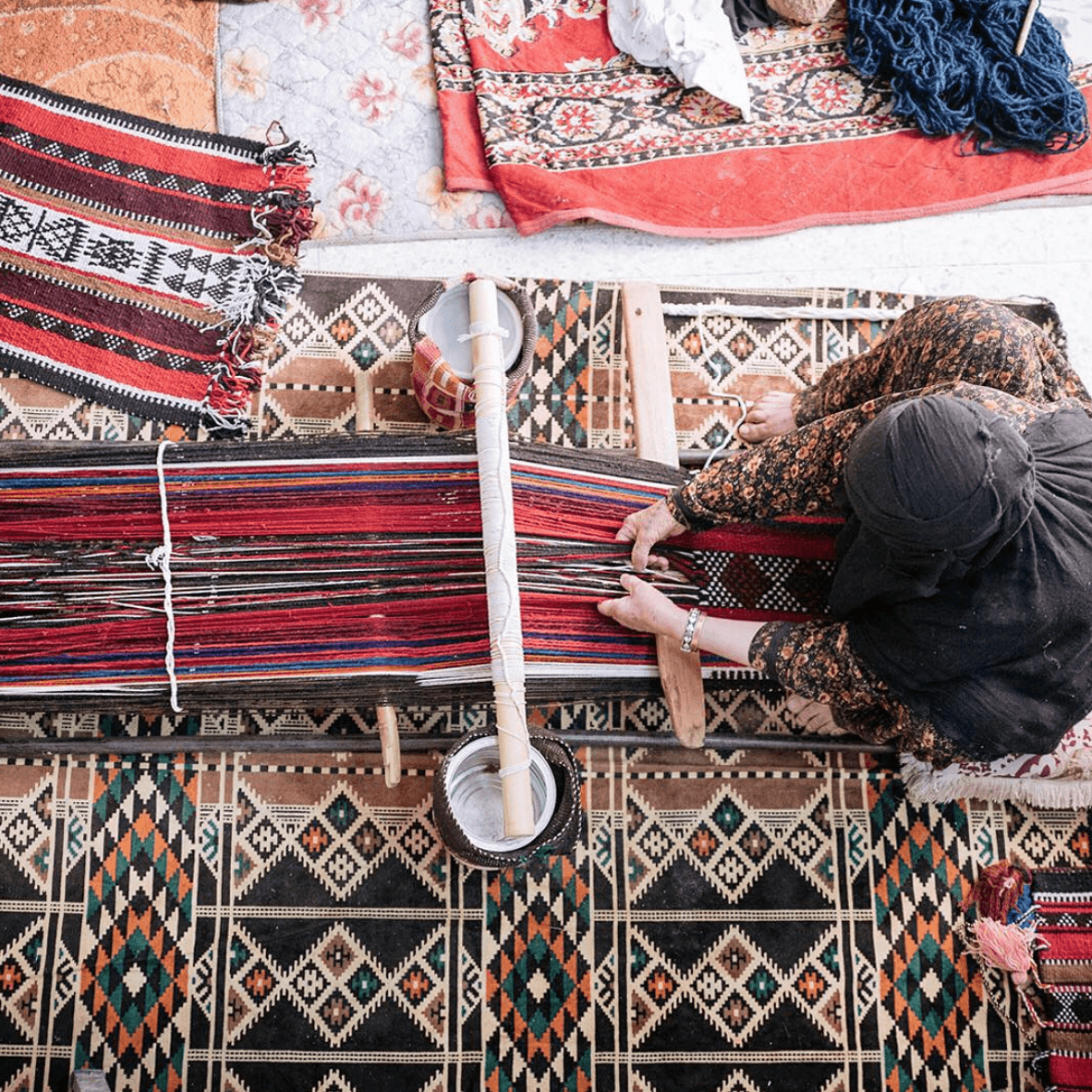Najla bint Ahmad
Having spent four years studying Anthropology at university in the UK; Princess Najla came back to Saudi Arabia with a new perspective on the country she loves. It was this opportunity to truly see Saudi Arabia through the eyes of an outsider, and to critique it as one too, that only furthered her love for her home, and set her on her path to launching Atharna.
A platform through which local artisans and their crafts are storied, promoted and sold; Atharna is a beautiful concept driven by a woman with an incredible passion for Arabic culture – a passion we quickly felt as we began to delve into her story, her inspiration and her dreams…
What inspires your interest and passion in cultural heritage?
I was born and raised in Saudi, and I have always nurtured the desire to work with local people. I am fortunate to live where I live. Saudi Arabia is a vast land which is a historical melting point of cultures and ethnicities attracted to the country either by religious appeal or by trade opportunities. Over the centuries, many tradesmen and pilgrims took abode in the country, creating a beautiful mosaic of ethnicities and cultures that have shaped the Saudi culture. I suppose I felt I wasn’t interacting with these cultural nuances as much as I’d like. This thirst to learn more about my own culture is what led me to study Anthropology at Durham University, which really cemented my passion for cultural heritage.
Did studying anthropology put a new lens on things?
Anthropology was a great basis for me to feel like I could go anywhere. I wrote my dissertation on “The Slippage of Modernity within the Saudi Society.” I also studied Kinship: I looked at families going from a tribal system to a more nuclear family. There is a considerable corpus of research on various aspects of Saudi life. However, most of it is either in Arabic and, therefore, cannot benefit a global audience; or in foreign languages written mostly by Westerners who offer an interpretation of their observations that is marked by their own worldview; therefore not always reflecting reality. I see my contribution to the existing literature as one that reflects the reality as seen by a local, but one with the rigour of analysis that came as a result of my studies both in the Kingdom and at world renowned British Universities.
What came next?
I called my uncle — as you do as an Arab. He’s the head of Commission of Tourism and Antiquities and he runs the National Museum in Riyadh. I was able to work for an Arab researcher at the museum who had just moved from the Institut du Monde Arabe in Paris. It was incredibly interesting to work for a woman in a heavily male-led workforce, and I definitely learnt a lot working as her assistant for four months. After that, I moved on to UNESCO’s headquarters in Paris, interning in the sector of education – in particular girl’s and women’s education in Kenya – before working for another five months at Turquoise Mountain as a researcher.
Tell us a bit about your time at Turquoise Mountain.
Turquoise Mountain does a lot of work in Afghanistan with artisans, and their success led the commission in Saudi to ask them to do research in the Saudi Arabian crafts industry and work with Saudi artisans. The work was remarkable in not only researching artisanal works, but helping the artisan themselves, by building them up into business people. There was just one problem that I found with it all, however. Throughout the year, there was nowhere for these artisans to showcase their work in order to forge a sustainable income – and I suppose that was the light-bulb moment for me. I suddenly thought, what’s more constant than an online marketplace, that can ship worldwide, to serve as a platform for these people? However, I felt there was a void in understanding these crafts, so we launched an online journal before launching the shop.
How did the online journal come together?
We collaborated with Dubai-based Brown Book magazine. They call themselves “A modern guide to the Middle East” — I love their aesthetic and their approach. We would write articles about the culture behind the crafts: anything that surrounds Middle Eastern crafts and culture. It was really great to launch the journal first because we built this wonderful community of people that share the same ideas and values.
On a personal level, why is it so important to you to tell these stories of the craftsmen and women?
When I was living in Saudi, I never really appreciated artisanal work there. I always looked abroad. Whenever I travelled, I always wanted to bring a part of the country back with me. I always wanted it to be handmade and local and kind of like a conversational piece I could have in my home. Visitors to Saudi weren’t able to do that as easily. If I had friends come out to see me, I’d always find it difficult to find something handmade in Saudi to give them to take home.
How do you find your artisans and what criteria do you look for?
We either work with artisans one-on-one or we work with cooperatives. When we work with cooperatives, it’s very simple. We just make sure they fit our ethical production checklist and sustainability requirements and if it’s handmade and locally-made. Once we feel they fit the bill, we work with them more as buyers. But, when we work with artisans one-on-one, it’s a longer process because we work with them from the ground-up. We help them set the craft up into a business, so we make sure they work with other artisans in the region if they need help and we provide them with local resources. A lot of these artisans think it’s easier to have factory-made materials from China or India and that’s not necessarily true. It’s been a long process because their work is sometimes dictated by their moods.
Are these skills that have been passed down through generations?
They have been. Although these artisans have learned their craft from their grandparents and their great grandparents, their children don’t necessarily think of it as a career path. They think of it like, “something my mother does” or “something my grandfather does.” They want to learn another skill they think will benefit them more. But, we’re trying to say, “No, this can be a career.” They’re designers and business people in their own right and they can build a business out of their craft and their skills. I hope the younger generation can look and say “I want to learn this craft, I want to learn this skill, because it can be a career for me”. So right now it’s not being passed down and, because of that, I hope it will change in some way.
Has your own family passed something along to you that’s enabled you to start this business?
My father passed away when I was 9. Although my grandfather and uncles have always been there for me, the biggest influence in my upbringing came from my mother who led by example, showing me how a woman can bring up her children while working hard at running a business, as long as she is equipped with the right education, driven by the right ambition and armed with the right values. My mother has taught me the value of being productive and independent. And if one day you have daughters, what would you hope for them? I would want to give them the same freedom of thought that my mother gave me. My mother always pushed me and now I see the value of that. She taught me the value of education more than I can ever thank her for in my life and that’s what I want to do with my daughters. I want to set them up to be independent, but also set them up with an education that can be right there by them so they they have a strong foundation.
And what advice would you give to other Saudi women looking to follow a passion and maybe start their own businesses?
Follow your dream by preparing well for it through education and proper assessment of your projects. Ambition is good, but it has to be combined with proper planning, patience and hard work. It all starts day by day and step by step and you have to take that first step to do it.
So, what’s your dream?
My dream is to achieve the ideals of Atharna and truly help Saudi artisans and handicrafts. My wider dream though, is to see Saudi women play a more active role in the development of our beloved country, combining modernity and authenticity. This trend has already started and I feel proud and privileged to be part of it.
"My dream though is to see Saudi women play a more active role in the development of our beloved country, combining modernity and authenticity."





